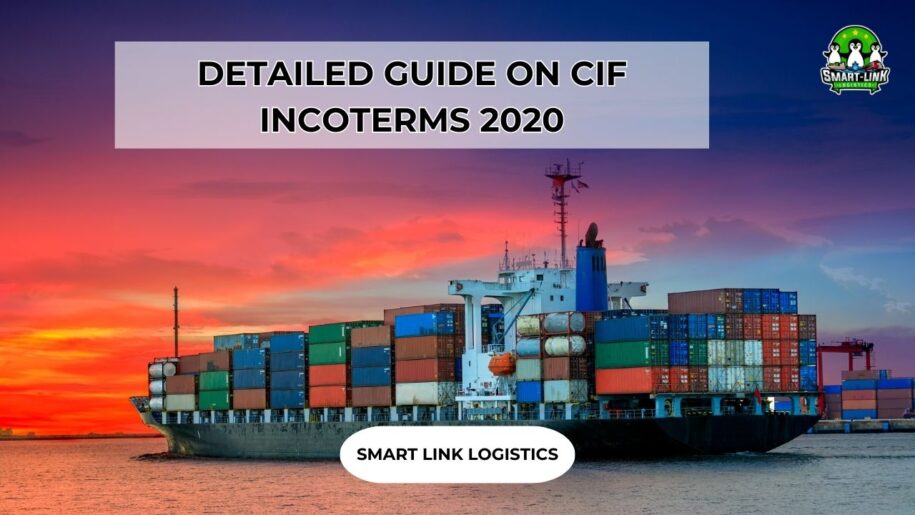
DETAILED GUIDE ON CIF INCOTERMS 2020
What is CIF? How are responsibilities, costs, and the transfer of risks divided between the seller and the buyer when applying the CIF Incoterms 2020? How can you effectively use this term in import-export transactions? Smart Link will provide you with the detailed information in this article.
1. What is CIF Incoterms 2020?
CIF (Cost, Insurance, and Freight) means that the seller is responsible for arranging the shipment, loading the goods onto the ship at the port of export, and covering the costs until the goods reach the port of import. The key difference between CIF and CFR (Cost and Freight) is that under CIF, the seller must also purchase insurance for the goods.
Conditions of application: CIF Incoterms 2020 is only applicable to sea or inland waterway transport and is not used for other modes of transportation.

2. Main Contents of CIF Incoterms 2020
- Supply of goods: The seller is responsible for delivering the goods and providing the necessary documents such as the bill of lading, commercial invoice, etc. The buyer must make payments as agreed in the sales contract.
- Licenses and procedures: The seller is responsible for the export documentation, while the buyer handles import procedures and obtains relevant licenses.
- Contract of carriage and insurance: The seller arranges the contract of carriage and purchases insurance for the goods. The buyer does not need to arrange for shipping or insurance.
- Delivery and receipt of goods: The seller delivers the goods at the designated port, and the buyer receives them at the same port.
- Transfer of risks: The risk is transferred from the seller to the buyer once the goods pass the ship’s rail at the port of export.
- Costs: The seller covers shipping, insurance, and export customs procedures. The buyer is responsible for costs arising once the goods arrive at the port of import, including import duties and customs clearance.
- Proof of delivery: The seller must provide original documents after the goods have been loaded onto the ship, and the buyer is responsible for accepting these documents.
- Inspection of goods: The seller bears the costs of inspection, packaging, and quality control. The buyer covers other inspection costs such as quarantine.
3. When should you use CIF?
- Seller: CIF is suitable when the seller wants to minimize transportation risks but can negotiate favorable freight rates or wants to increase competitiveness and maintain control over the delivery process.
- Buyer: It is better to avoid purchasing under CIF if the goods are high-value and require special insurance, or if the buyer can secure better international shipping arrangements and prefers to manage transportation directly.
Smart Link hopes this article has provided you with a clearer understanding of CIF Incoterms 2020. Thank you for taking the time to read! We take pride in having over 13 years of experience in transportation and look forward to accompanying you throughout your journey.
Hotline: + 84 935 766 039 to know more about our services

If you require assistance with international import and export of goods, please contact our team at Smartlink Logistics. We are available to provide you with professional guidance on our services and the necessary customs procedures.
SMART LINK: BEST SERVICE BEST YOU


































